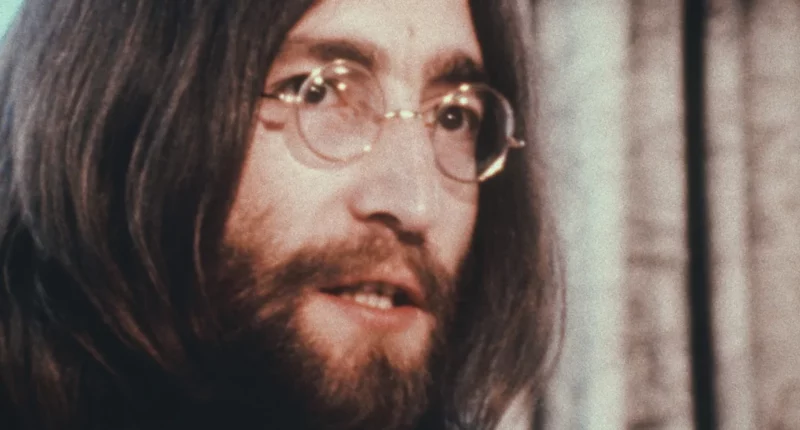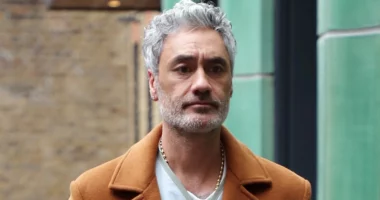The docuseries “John Lennon: Unjust Murder” focuses predominantly on Mark David Chapman’s heinous act, overshadowing the musical genius of Lennon himself. This stark emphasis exposes the media’s inclination towards sensationalizing true crime, inadvertently granting perpetrators the undeserved attention they crave.
Despite attempts to pay homage to Lennon’s role as an outspoken advocate for peace, the documentary predominantly fixates on the tragic events leading to his 1980 murder. It mournfully captures Lennon’s final aspirations—his desire to continue creating music and be present for his young son, Sean—underscored by poignant audio from his last interview.
The series adeptly portrays the immediate aftermath of Lennon’s death, capturing the overwhelming grief of fans gathered outside Lennon and Yoko Ono’s home, The Dakota. It also highlights the ethical debate within the “Monday Night Football” team, questioning the appropriateness of interrupting the game with the breaking news of Lennon’s murder, a decision ultimately made by Howard Cosell.
However, the documentary’s irony is vividly articulated by former prosecutor Kim Hogrefe, who deliberately refers to Chapman solely as “the defendant” to deny him the notoriety he sought. Hogrefe condemns Chapman for stealing the fame of someone as influential as John Lennon.
Beyond the initial chaos and the discussions with law enforcement and medical personnel involved in the shooting, “Unjust Murder” delves deeply into Chapman’s psyche, exploring his motives and mental health issues. This narrative mirrors John Hinckley Jr.’s attempted assassination of President Ronald Reagan months later, both perpetrators seeking an insanity defense.
The absence of a trial has spurred conspiracy theories, including speculations about government interest in Lennon’s anti-war activism. However, the documentary tends to dwell more on the sensational aspects of the story, glossing over Lennon’s life and musical legacy.
Narrated by Kiefer Sutherland and directed by Nick Holt and Rob Coldstream, the series claims to offer a glimpse into the murderer’s mind. Coinciding with the release of a new Beatles song, “Now and Then,” featuring Lennon’s vocals, it prompts reflection on how much attention is given to Chapman’s mental state versus Lennon’s musical contributions.
Ultimately, the disproportionate focus on Chapman’s psyche in “Unjust Murder” forces us to confront our societal priorities, revealing a collective fascination with perpetrators over the celebration of a cultural icon like John Lennon.





